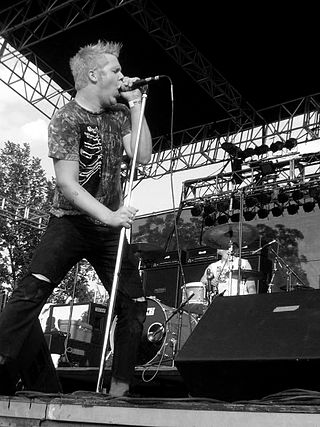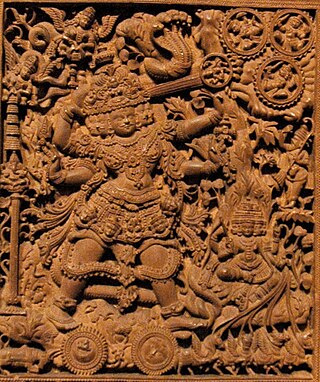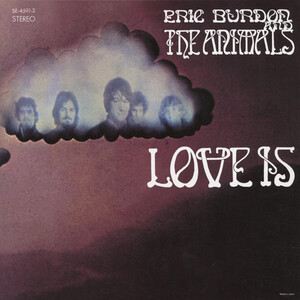
Chariots of Fire is a 1981 British historical sports drama film directed by Hugh Hudson, written by Colin Welland and produced by David Puttnam. It is based on the true story of two British athletes in the 1924 Olympics: Eric Liddell, a devout Scottish Christian who runs for the glory of God, and Harold Abrahams, an English Jew who runs to overcome prejudice. Ben Cross and Ian Charleson star as Abrahams and Liddell, alongside Nigel Havers, Ian Holm, John Gielgud, Lindsay Anderson, Cheryl Campbell, Alice Krige, Brad Davis and Dennis Christopher in supporting roles. Kenneth Branagh makes his debut in a minor role.

Evangelos Odysseas Papathanassiou, known professionally as Vangelis, was a Greek composer and arranger of electronic, progressive, ambient, and classical orchestral music. He was best known for his Academy Award-winning score to Chariots of Fire (1981), as well as for composing scores to the films Blade Runner (1982), Missing (1982), Antarctica (1983), The Bounty (1984), 1492: Conquest of Paradise (1992), and Alexander (2004), and for the use of his music in the 1980 PBS documentary series Cosmos: A Personal Voyage by Carl Sagan.

A chariot is a type of cart driven by a charioteer, usually using horses to provide rapid motive power. The oldest known chariots have been found in burials of the Sintashta culture in modern-day Chelyabinsk Oblast, Russia, dated to c. 2000 BCE. The critical invention that allowed the construction of light, horse-drawn chariots was the spoked wheel.

Harold Maurice Abrahams was an English track and field athlete. He was Olympic champion in 1924 in the 100 metres sprint, a feat depicted in the 1981 film Chariots of Fire.

Chariots of the Gods? Unsolved Mysteries of the Past is a book written in 1968 by Erich von Däniken and translated from the original German by Michael Heron. It involves the hypothesis that the technologies and religions of many ancient civilizations were given to them by ancient astronauts who were welcomed as gods.

Phaethon, also spelled Phaëthon, was the son of the Oceanid Clymene and the sun-god Helios in Greek mythology.

The Buddhas of Bamiyan were two 6th-century monumental statues carved into the side of a cliff in the Bamyan valley of Hazarajat region in central Afghanistan, 130 kilometres (81 mi) northwest of Kabul at an elevation of 2,500 metres (8,200 ft). Carbon dating of the structural components of the Buddhas has determined that the smaller 38 m (125 ft) "Eastern Buddha" was built around 570 CE, and the larger 55 m (180 ft) "Western Buddha" was built around 618 CE, which would date both to the time when the Hephthalites ruled the region. On orders from Taliban founder Mullah Omar, the statues were destroyed in March 2001, after the Taliban government declared that they were idols. International and local opinion strongly condemned the destruction of the Buddhas.

Merkabah or Merkavahmysticism is a school of early Jewish mysticism, c. 100 BCE – 1000 CE, centered on visions such as those found in the Book of Ezekiel chapter 1, or in the hekhalot literature, concerning stories of ascents to the heavenly palaces and the Throne of God. The main corpus of the merkabah literature was composed in the period 200–700 CE, although later references to the Chariot tradition can also be found in the literature of the Chassidei Ashkenaz in the Middle Ages. A major text in this tradition is the Maaseh Merkabah.

"Swing Low, Sweet Chariot" is an African-American spiritual song and one of the best-known Christian hymns. Originating in early oral and musical African-American traditions, the date it was composed is unknown. Performances by the Hampton Singers and the Fisk Jubilee Singers brought the song to the attention of wider audiences in the late 19th century. J. B. T. Marsh includes an early version of text and tune in his 1876 publication The Story of the Jubilee Singers, with their Songs. The earliest known recording of "Swing Low, Sweet Chariot" was recorded in 1894, by the Standard Quartette.

The Chariot was an American hardcore punk band from Douglasville, Georgia, that existed from 2003 to 2013. The last lineup consisted of drummer David Kennedy, vocalist and bandleader Josh Scogin, and guitarists Brandon Henderson and Stephen Harrison. The band experienced frequent lineup changes since its inception, with Scogin being the only original member. The band played an abrasive style of metalcore that did not adhere to typical stylings popular among their contemporaries such as melodic/abrasive dynamics and harmonic vocals. They built a reputation around their powerful live performances, with Scogin's lyrics covering topics like materialism, personal struggle, current events, politics, and Christian themes.

Ben Hur is a 1907 American silent drama film set in ancient Rome, the first screen adaptation of Lew Wallace's popular 1880 novel Ben-Hur: A Tale of the Christ. Co-directed by Sidney Olcott and Frank Oakes Rose, this "photoplay" was produced by the Kalem Company of New York City, and its scenes, including the climactic chariot race, were filmed in the city's borough of Brooklyn.

Harry Bernard Cross was an English stage and film actor. He was best known for playing Billy Flynn in the original West End production of the musical Chicago, and his portrayal of the British Olympic athlete Harold Abrahams in the 1981 film Chariots of Fire.

Tripura, meaning three cities or fortresses, is described in Hindu mythology as being constructed by the great Asura architect Mayasura. They were great cities of prosperity, power and dominance over the world, but due to their impious nature, Maya's cities were destroyed by god Tripurantaka or Tripurari, an aspect of Shiva. The three cities were made of gold, silver and iron and were located on the heaven, earth and underworld respectively.

"Chariots of Fire" is an instrumental theme written and recorded by Vangelis for the soundtrack of the 1981 film of the same name. It has been covered by numerous performers and used for various television programs and sporting events.

Tripurantaka or Tripurari and Pashupati is a manifestation of the Hindu god Shiva. In this aspect, Shiva is depicted with four arms wielding a bow and arrow, but different from the Pinakapani murti. He holds an axe and a deer on the upper pair of his arms. In the lower pair of the arms, he holds a bow and an arrow respectively. After destroying Tripura, Tripurantaka Shiva smeared his forehead with three strokes of Ashes. This has become a prominent symbol of Shiva and is practiced even today by Shaivites.

Love Is is the third album by Eric Burdon and the Animals. It was released in 1968 as a double album.

Chariots of Fire is a 1981 musical score by Greek electronic composer Vangelis for the British film Chariots of Fire, which won four Academy Awards including Best Picture and Original Music Score.
Chariots of Fur is a seven-minute Looney Tunes short released in 1994 by Warner Bros. It features Wile E. Coyote and the Road Runner and was directed by Chuck Jones, who introduced the pair in 1949. As in other shorts of the Road Runner series, Wile E. tries to catch his potential prey through the use of various devices. This film's soundtrack uses music from the Bedřich Smetana opera The Bartered Bride. It was released in North American theaters preceding the film, Richie Rich. It was the first time a new short of Wile E. Coyote and Road Runner had been released theatrically since 1966. This was the final Coyote/Road Runner short to be directed by Jones before his death on February 22, 2002. The title is a parody of Chariots of Fire.

Chariots of the Gods is a 1970 West German documentary film directed by Harald Reinl. It is based on Erich von Däniken's book Chariots of the Gods?, a pseudoscientific book that theorizes extraterrestrials impacted early human life and evolution. The film was nominated for an Academy Award for Best Documentary Feature.

Sunshine in the Rain – The Album is BWO's special compilation album for Japan and was released on April 15, 2009. It contains 15 songs and 3 remixes. The first single of this album is "Sunshine in the Rain" and the second single is "Lay Your Love on Me".



















